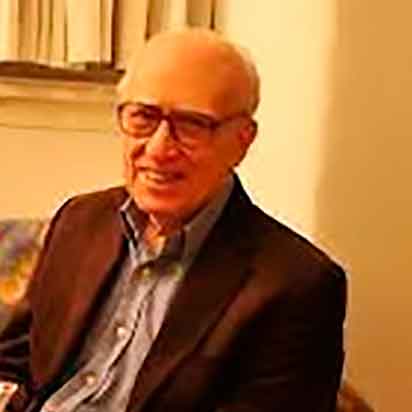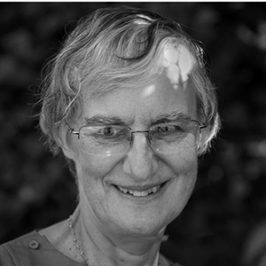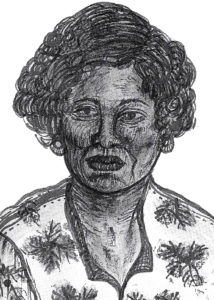


Inspired reading, with pieces by Leon Arden and Shirley J. Brewer, plus a peek inside the new issue with a poem by Charles Kesler.
7 minutes
TRANSCRIPT
On June 29, 1613, Shakespeare’s home theater, The Globe, burned down after a special effects cannon being used in a production of Henry VIII misfired and caught the roof on fire. On this edition of Burning Bright, a couple pieces with at least allusions to Shakespeare.
Leon Arden used Shakespeare’s line from Twelfth Night “If Music Be the Food of Love” as the title of a story he wrote and that Passager included in its 21st Anniversary anthology Burning Bright. It’s about the abuse by students and ultimately administrators of a music teacher, and it’s about the narrator’s crush on a girl. That’s the part of the story I’ve pulled out to read. The narrator is a high school student.
Clearing his throat, Mr. Trundle stepped ever gingerly into the breach. “A quartet is any body of four performers, vocal or instrumental. A piano quartet, for example, is a piano joined with three stringed instruments . . .”
Francene scribbled notes, her shining hair guarding the page from wayward glances, while I kept an eye on our teacher as I would on an inexperienced member of a bomb disposal unit . . .
Later, after some students began heckling the teacher, “Tsh,” came a protest from Francene who, to my delight, also wanted this music appreciated, not desecrated. I caught her eye, something I had never been able to do before, and we shook our heads in mutual despair. I was thrilled . . .
As I left the room, trying not to think of what had happened and, worse, would continue to happen, I rested my eyes on her bouncing hair and the sheathed metronome of her hips as she carried her books down the hall.
. . . [By the next week], he was gone from the school. Nothing was said except that Music Appreciation would be discontinued until next term.
Francene Swick came up in the hall one day and numbed me by speaking my name. We no longer shared a class, and I hadn’t seen her for weeks. As usual, whenever we met, time stopped for about three seconds. Her mouth was bracketed with those charming character lines in her slightly sunken cheeks and her eyes now were extra large as if she wished to draw me into all that cornflower blue.
“He’s gone. They drove him away.”
I swallowed and said, “Look, I’m thinking of asking Mr. Tinworth to give me Trundle’s address. To write to him. We can write to him together, if you like. Compose a letter after school if that’s OK. And both sign it.”
She smiled. I was certain she saw right through this little proposal of mine, right through and down to my boxer shorts.
“I’m taking typing lessons,” she said. “If you come to my house, I can practice as we write it.”
She spoke to me through turbulence. I caught the sense but lost the words. We agreed on a day. Her place, I said, was fine.
The “late” bell rang through empty halls. She touched my arm and hurried off, her hips in jaunty 4/4 time.
Excerpts from Leon Arden’s story “If Music Be the Food of Love.”
Passager author Shirley Brewer recently published a new book, Wild Girls with Apprentice House Press. You can get more information about it on Shirley’s web site, shirleyjbrewer.com. Here, with another Shakespeare reference, from her book A Little Breast Music that Passager published, her poem “The Face of Heaven.”
Today, I will give away your blue suit,
the one you wore to Milton’s third wedding.
How we laughed when the best man
ruined the toast with a champagne sneeze —
a hundred bubbles on your sleeve,
the good days in your eyes.
I fold your ties — your shirts
a confusion of plaid.
For months I waited for you to return,
unable to face the quiet in your closet:
rubber bands in every pocket, sweaters
still holding your scent.
I try to remember what you wore
when we met in Shakespeare —
your voice counting the lines in my sonnet.
Your eyes removed my clothes
one unstressed syllable at a time,
and wrapped my body
in heat that followed me home.
“The Face of Heaven,” Shirley Brewer. That title, “The Face of Heaven,” by the way, is an allusion to the speech in which Juliet imagines that when Romeo dies, he will be “cut out in little stars, and he will make the face of heaven so fine that all the world will be in love with the night.”
Shirley’s birthday was earlier this month. So is Lucille Clifton’s. Lucille Clifton was born June 27, 1936. Back in 1990 when Passager started, Lucille was Passager’s muse and guiding spirit. Her picture was on the cover of Passager’s first issue, and inside was an interview with her and two of her poems.
Passager’s 2023 Poetry Contest issue will be out in September. Here from that issue, Charles Kesler’s “Psychologists.”
My first encounter with a psychologist
was when he jerked me off a barstool
by my long blonde hair in the early 70‘s.
As I responded to the crisis
several guys jumped between us
and the psychologist was ushered out
into the street and told not to come back.
The bartender then told me his story.
People’s problems finally flipped him out
and he became a drunk on the streets
of my hometown going from bar to bar.
Now in the early 90’s I see a psychologist
once a week, but I can’t help wondering
when my Vietnam War problems
will finally flip him out.
I wonder if this has anything to do
with his upcoming retirement.
“Psychologists,” Charles Kesler from Passager’s upcoming 2023 Poetry Contest issue.
To buy Shirley Brewer’s book A Little Breast Music, Passager’s 21st Anniversary anthology Burning Bright, subscribe to or learn more about Passager and its commitment to writers over 50, go to passagerbooks.com.
For Kendra, Mary, Christine, Rosanne and the rest of the Passager staff, I’m Jon Shorr.






